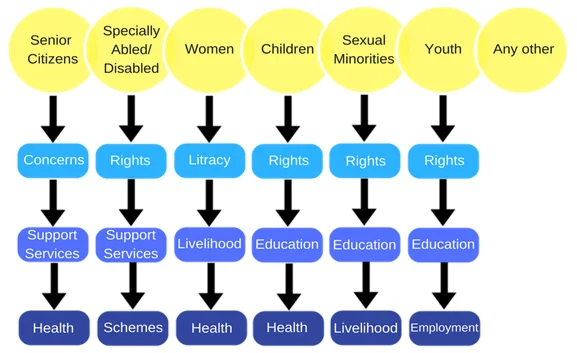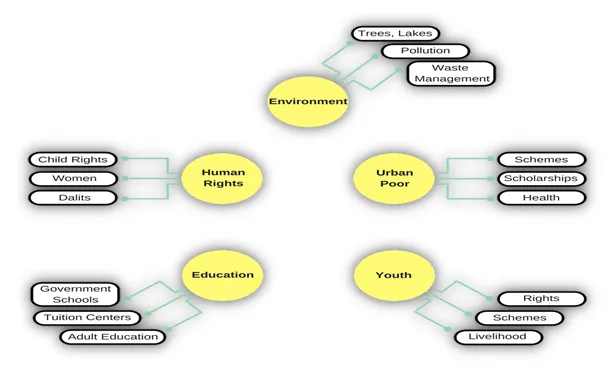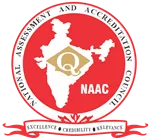- About Us
- Admission
- Academics
- Examination
- IQAC
- Research
- IIC
- Placements
- Student Support
- Anti - Ragging
- Citizenship Training
- Counselling
- Equal Opportunity Centre
- Mentorship
- Mid day Meal Scheme
- Scholarship
- Sexual Harassment (Prevention and Redressal)
- CQAC and SQAC
- Students Welfare
- Capability Enhancement and Development Schemes
- Assessing Learning Levels
- International Desk
- Student Grievance Redressal Committee SGRC
- St. Joseph's Boys Hostel - Apply
- Outreach
- Student Activities
- Infrastructure
- Sports
- Alumni Activities
The college aims at a holistic and integral formation of its students, fostering in them a spirit of academic excellence, social concern and character formation, shaping them to become “men and women” for others.
The Jesuit view of Higher education has never been a simplistic and one-sided one. It concerns all round development with a special focus on critical praxis that engages the student to yoke their academic excellence, their character development and their personal concern to the transformation of a society deeply disturbed by inequality and injustice. The student that passes through Jesuit higher education cannot remain isolated from the economic, political and cultural fabric of his/her society. It is integral to higher education that he/she becomes aware of and is involved in the everyday realities of society. In alignment with the Jesuit Higher Education purposes, the University Grants Commission, the Highest Education Authority in India, has recognized the relevance and importance of the purpose and practice of 'Extension' as integral to the process of learning. Hence it expects universities and colleges, given their knowledge, human resources, and infrastructure, to become positive change-makers who would empower the marginalized of society.
The Outreach programme draws its inspiration from the college's vision forming women and men for others. It will provide students with a platform to explore and develop the art of critical thinking, the skills of leadership and techniques of meaningful interventions aimed at building a just and equitable society. It further draws its roots the Brazilian educator Paulo Frere’s Philosophy of Action Reflection Praxis. In view of the UGC and the NAAC recommendations on Extension, the objective of the outreach programme is to extend knowledge and other institutional resources to the community and vice-versa. It is a two-way process and perfect blend of theory with practice; it is intellectual intervention in the community's living problems which need to be overcome through an educational process and extension activities. In alignment with the Jesuit Higher Education purposes, the University Grants Commission, the Highest Education Authority in India, has recognized the relevance and importance of the purpose and practice of 'Extension' as integral to the process of learning. Hence it expects universities and colleges, given their knowledge, human resources, and infrastructure, to become positive change-makers who would empower the marginalized of society.
It will orient the students with the skills required in community development and would sensitize them towards various issues of these marginalized groups and instill enough confidence and satisfaction for taking up the cause of the development of those groups.
As the name of the programme BEMBALA ಬೆಂಬಲ itself suggests, it aims to reach out to the deprived groups and vulnerable sections of society and create opportunities for education, awareness and skill enhancement. It intends to create a learning process for faculty and students, through exposure to community needs, problems, and issues. It hopes to reach out to the community by designing need-based interventions and generating research. Eventually, it will facilitate networking and linkages of the community with NGOs, institutions, and government agencies for the effective service delivery and advocacy support. It also hopes to link up with the corporate sector within the parameters of Corporate Social Responsibilities (CSR).
The Preparation Stage
Students will be equipped with the required knowledge, through HRD classes, Talks, and Documentaries. In this process, students will be able to identify student leaders and the leaders will also undergo a special training to lead the class for the outreach activity.
The Practical Stage
The actual outreach begins and there will be a continuous evaluation, assessment of the experiences and ongoing formation talks arranged for the students.
|
TASKS |
PLACES |
UNDER GRADUATE LEVEL |
POST GRADUATE LEVEL |
1 |
Field Visits |
30 Hours |
16 Hours |
2 |
Rural Exposure |
4 Days |
4 Days |
3 |
Documentation |
5 Hours |
2 Hours |
4 |
Public Events |
5 Hours |
2 Hours |




